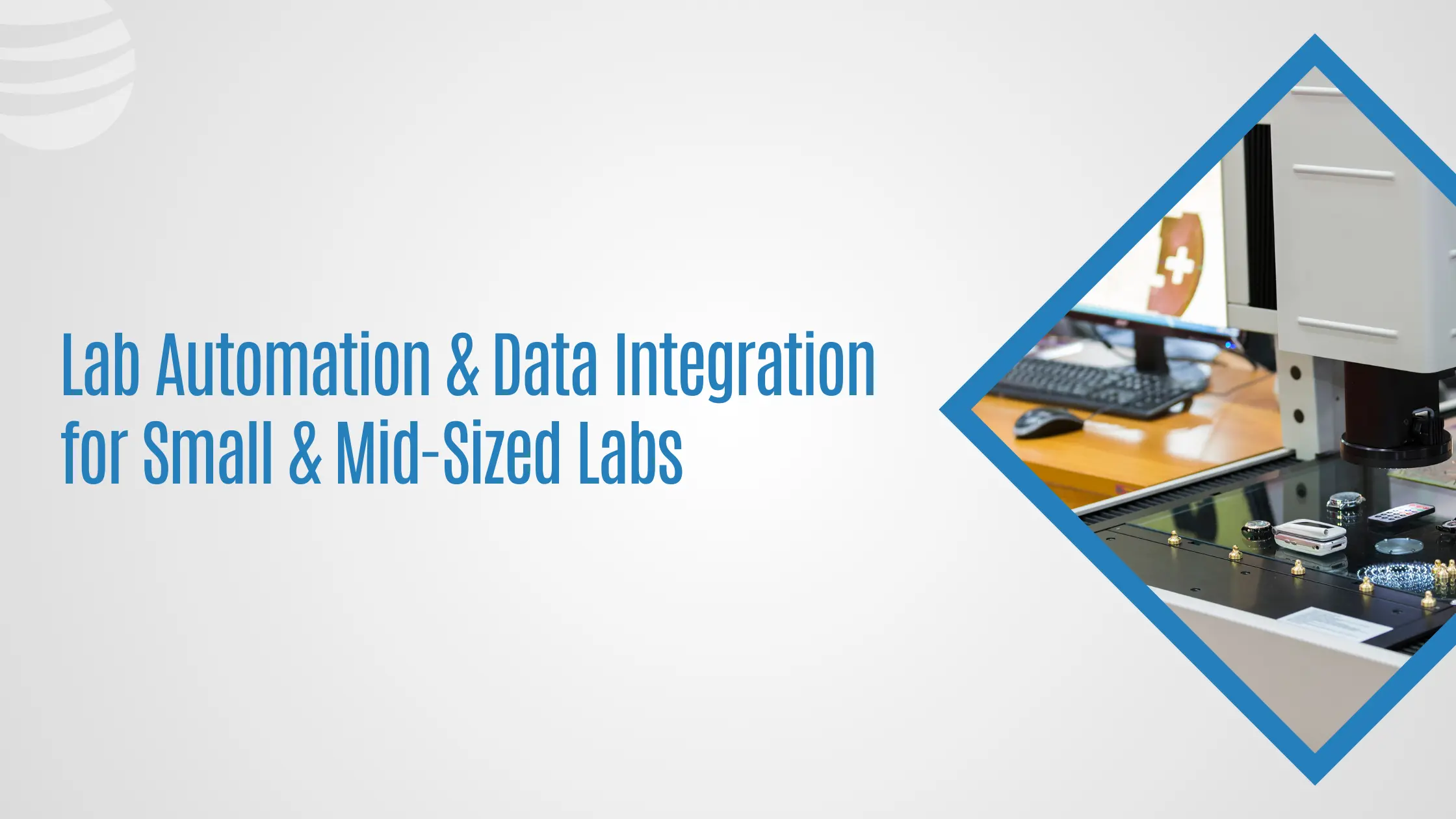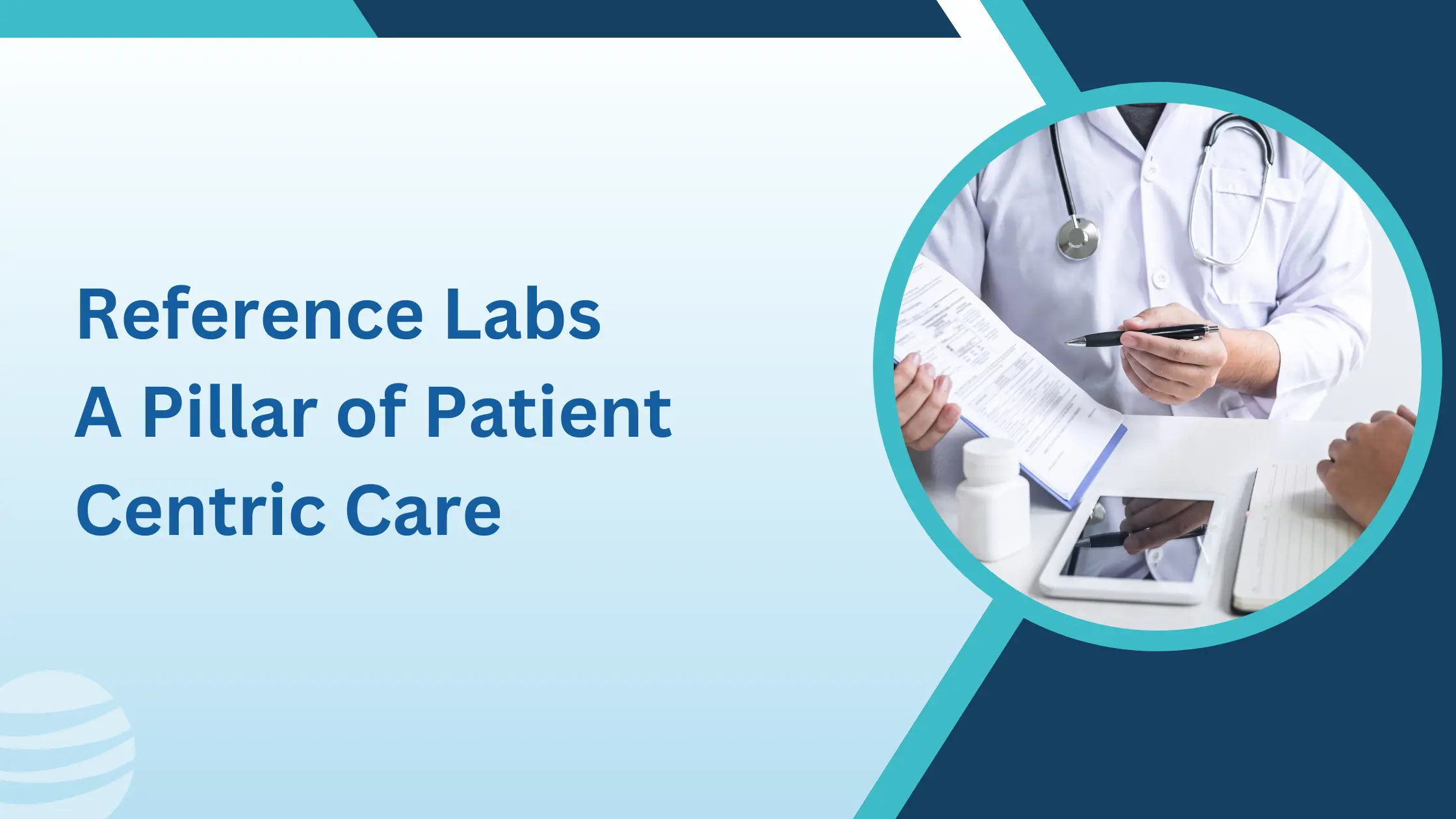

How Reference Labs are Revolutionizing Patient-Centric Care
What is a Reference Labs?
Reference labs play a crucial role in modern healthcare by providing specialized testing services that aid in diagnosing and monitoring various medical conditions. These labs are distinct from the in-house laboratories commonly found in hospitals and clinics, as they focus on conducting more complex and specialized tests that require advanced technologies and expertise. Here are some key points to consider when exploring the world of reference labs:
Specialized Testing: Reference labs offer a wide range of specialized tests that may not be available in traditional clinical settings. These tests can include genetic testing, molecular diagnostics, and advanced imaging techniques, among others.
Quality and Accuracy: Reference labs are known for their high-quality standards and accuracy in testing results. They often have rigorous quality control measures in place to ensure reliable and precise outcomes for patients.
Advanced Technology: These labs invest in cutting-edge technology and equipment to perform intricate testing procedures efficiently. By staying up-to-date with the latest advancements in medical technology, reference labs can offer innovative and advanced testing solutions.
Collaboration with Healthcare Providers: Reference labs work closely with healthcare providers to ensure seamless coordination in patient care. They provide valuable insights and interpretation of test results, assisting physicians in making informed decisions about patient treatment and management.
Convenience and Accessibility: Patients can easily access reference lab services through healthcare providers who partner with these facilities. This accessibility allows for timely testing and prompt delivery of results, facilitating faster diagnoses and treatment plans.
As the healthcare industry continues to prioritize patient-centric care, reference labs are becoming increasingly vital in delivering accurate, timely, and specialized testing services to support individualized treatment approaches.

Role of Reference Labs in Patient-Centric Care
- Reference labs play a crucial role in providing accurate and timely diagnostic testing for patients.
- These labs often have access to advanced technology and specialized expertise, allowing for more comprehensive and precise testing.
- By partnering with healthcare providers, reference labs assist in diagnosing various conditions and diseases, leading to more effective treatment plans.
- Reference labs help facilitate coordinated care by sharing test results with healthcare professionals, enabling seamless communication and collaboration.
- Patients benefit from reference labs through faster turnaround times for test results, leading to quicker diagnosis and treatment initiation.
- These labs also adhere to quality standards and regulations to ensure the accuracy and reliability of test results, instilling confidence in patients and healthcare providers.
- Through their vast testing capabilities, reference labs enable personalized medicine by tailoring treatment plans to individual patient needs.
- Reference labs contribute to improving patient outcomes by assisting healthcare providers in making informed decisions based on comprehensive test results.
By actively participating in the healthcare ecosystem, reference labs play a vital role in enhancing patient-centric care through their specialized services, advanced technology, and commitment to accuracy and quality standards.
Advantages of Utilizing Reference Labs for Patients
- Reference labs offer a wide range of specialized tests that may not be available at local hospitals or clinics.
- Patients can benefit from more accurate and reliable test results due to the advanced technology and expertise available at reference labs.
- Faster turnaround times for test results allow patients and healthcare providers to make timely decisions regarding treatment plans.
- Reference labs often have access to a larger network of resources, leading to more comprehensive and integrated care for patients.
- Patients can experience cost savings by avoiding unnecessary repeat tests or procedures through the use of reference labs.
- Improved communication between healthcare providers and reference labs can lead to better coordination of care and customized treatment options for patients.
- Utilizing reference labs can enhance the overall patient experience by providing convenience, efficiency, and quality in diagnostic services.
Technological Innovations in Reference Laboratories
- Reference labs are incorporating cutting-edge technologies to enhance efficiency and accuracy in testing procedures.
- Automation plays a vital role in streamlining processes within reference labs, leading to faster turnaround times for test results.
- Robotic technology is being utilized for precise handling and processing of samples, reducing human error and ensuring reliability.
- Advanced laboratory information management systems (LIMS) are implemented to improve data management and integration, enabling seamless tracking of samples and results.
- Artificial intelligence and machine learning algorithms are being leveraged to analyze vast amounts of data quickly and accurately, aiding in the interpretation of complex test results.
- The adoption of digital pathology systems allows for remote access to images, facilitating collaboration among pathologists and specialists.
- Next-generation sequencing technologies are revolutionizing genetic testing, providing more comprehensive and detailed insights into patients’ health and potential risks.
- Telemedicine solutions are being integrated into reference labs, allowing for virtual consultations and efficient communication between healthcare providers and lab personnel.
Embracing these technological innovations enables reference labs to meet the increasing demands for high-quality, patient-centric care while ensuring precision, reliability, and timeliness in diagnostic testing.

Challenges and Limitations of Reference Labs in Patient-Centric Care
Limited Accessibility: Reference labs may not be easily accessible to all patients due to geographical constraints or limited availability in certain regions.
Turnaround Time: Longer turnaround times for test results can be a challenge, especially for urgent cases where quick results are crucial for patient care.
Cost Constraints: Some patients may face financial barriers accessing reference labs, leading to disparities in care and limited options for those with restricted resources.
Quality Control: Ensuring quality and accuracy of results across different reference labs can be a challenge, affecting the reliability of test outcomes.
Integration with Healthcare Systems: Reference labs need seamless integration with healthcare systems to ensure efficient communication of results and coordinated care for patients.
Regulatory Compliance: Adhering to stringent regulatory requirements to maintain high standards of operation and data privacy can pose challenges for reference labs.
Limited Test Menu: Reference labs may not offer the full range of diagnostic tests needed for comprehensive patient care, requiring coordination with multiple facilities for complete testing.
Staffing and Training: Recruiting and retaining skilled personnel, along with providing ongoing training, are vital for maintaining the quality of services provided by reference labs.
Data Management: Handling large volumes of patient data securely and efficiently requires robust systems, posing a challenge for reference labs in ensuring data privacy and integrity.
Patient Education: Educating patients about the role and importance of reference labs in their healthcare journey can be a hurdle in promoting patient-centric care and understanding test results effectively.
Impact on Healthcare Quality
- Reference labs play a crucial role in improving healthcare quality by providing specialized testing services that are not always available in local hospitals or clinics.
- By offering a wide range of advanced tests and procedures, reference labs help healthcare providers make accurate diagnoses and develop effective treatment plans for patients.
- Reference labs utilize state-of-the-art technology and employ highly trained personnel to ensure precise and reliable test results.
- The collaboration between reference labs and healthcare facilities leads to better patient outcomes, as doctors can access detailed and comprehensive lab reports to guide their clinical decisions.
- Additionally, reference labs adhere to strict quality control measures and accreditation standards to maintain the highest level of accuracy and reliability in their testing processes.
- Through their expertise and focus on continuous improvement, reference labs contribute to advancing medical knowledge and enhancing overall healthcare delivery.
Overall, the impact of reference labs on healthcare quality is profound, as they serve as essential partners in the diagnostic and treatment journey of patients, helping to ensure that individuals receive the best possible care based on reliable laboratory information.
Cost-Effectiveness for Patients
- Reference labs provide cost-effective solutions for patients by offering a wide range of diagnostic tests at competitive prices.
- Patients can benefit from reduced out-of-pocket costs compared to tests done at smaller labs or hospitals.
- Bulk ordering and centralized testing in reference labs help streamline processes, leading to cost savings that are passed on to patients.
- Patients also benefit from access to specialized testing not available at all healthcare facilities, ensuring accurate and comprehensive diagnoses.
- Utilizing reference labs can result in quicker turnaround times for test results, allowing for faster treatment decisions and improved patient outcomes.
- With the ability to conduct high volumes of tests efficiently, reference labs can offer cost-effective solutions without compromising on quality or accuracy.
- Patients can save money in the long run by receiving accurate and timely diagnoses through reference labs, leading to better management of their health conditions.
- Overall, the cost-effectiveness of reference labs contributes to a more patient-centric approach to healthcare by reducing financial burdens and improving access to high-quality diagnostic services.

Laboratory Information System (LIS) an effective electronic solution for managing lab operations
- Laboratory Information Systems (LIS) are computer systems specifically designed for managing the workflow and data from clinical laboratories.
- LIS streamlines the processing of laboratory tests, reduces errors, and improves overall efficiency in lab operations.
- These systems can automate the collection, processing, and storage of lab test results, making it easier for healthcare providers to access and track patient data.
- LIS also helps in inventory management, quality control, and generating reports for regulatory compliance.
- By integrating with other healthcare systems like Electronic Health Records (EHR), LIS ensures seamless information exchange and enhances patient care coordination.
- With features like auto-verification of results and decision support tools, LIS enhances the accuracy and timeliness of test results.
- The implementation of LIS in reference labs has led to improved turnaround times for test results and enhanced patient satisfaction.
- With the ability to handle a large volume of tests efficiently, LIS contributes significantly to the productivity and profitability of reference labs.
- The scalability and customization options of LIS make it adaptable to the evolving needs of reference labs and healthcare organizations.
- In conclusion, Laboratory Information Systems play a crucial role in streamlining lab operations, enhancing data management, and ultimately improving patient-centric care in reference labs.
Collaboration between Reference Labs and Healthcare Providers
- Reference labs offer a wide range of specialized testing services that are often not available in-house at healthcare facilities.
- By collaborating with reference labs, healthcare providers can access advanced diagnostic tests and expertise that help in accurate and timely patient diagnosis.
- Communication between reference labs and healthcare providers is vital for ensuring seamless coordination in test ordering, result interpretation, and follow-up care.
- Reference labs provide support to healthcare providers by offering consultation services, assisting in test selection, and providing guidance on result interpretation.
- Through collaboration, reference labs can help healthcare providers stay updated on the latest advancements in diagnostic testing and treatment options.
- Reference labs play a crucial role in supporting healthcare providers in delivering personalized and patient-centric care.
- The partnership between reference labs and healthcare providers is essential for improving patient outcomes and enhancing the quality of care.
- Collaborative efforts between reference labs and healthcare providers can lead to more efficient utilization of resources and cost-effective healthcare delivery.
- Integration of reference lab services into the healthcare system enhances the overall efficiency and effectiveness of patient care.


